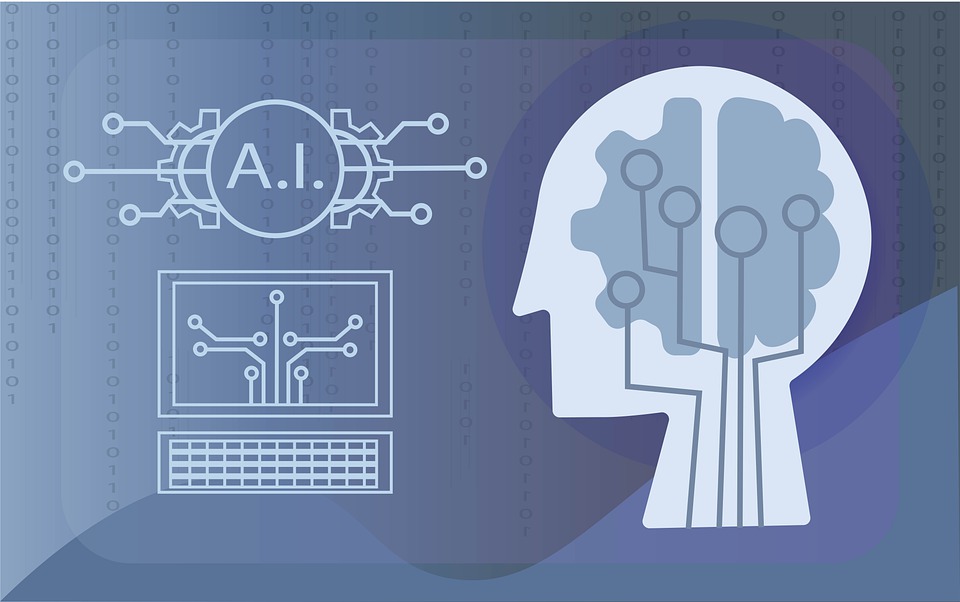n recent years, Artificial Intelligence (AI) has decidedly become a household term. No longer bound to the realm of science fiction, AI already sees many uses in our everyday lives. From Apple’s Siri and Tesla’s Autopilot to chatbots, AI is transforming the world – slowly but steadily. Powering technologies that see widespread commercial use aside, it also has broader implications for multiple industries. Most importantly, in this article’s context, AI is transforming the finance industry as well, in fundamental ways. From changing how we interact with financial institutions to remodeling the financial system’s safeguards, AI is indeed the new frontier.
Weak AI, strong AI, and super AI
A fundamental distinction to make before discussing the applications of AI across industries is the one among AI types. IBM distinguishes among 3; weak, strong, and super AI.
In essence, weak or narrow AI is the practical AI we see today. IBM explains it “focuses on performing a specific task, such as answering questions based on user input or playing chess”. Weak AI still boasts learning capabilities, but it narrows its application to specific, set tasks such as software testing.
In contrast, strong AI is currently a theoretical form of AI. It entails AI with self-awareness, consciousness, and massive learning capabilities outside a set scope of functions. No concrete examples of strong AI exist yet, but for many, it is the pending evolution of weak AI.
Finally, super AI is strictly theoretical as well. It is the next stage after strong AI, with massively improved capabilities. However, super AI will remain a theory until strong AI fully materializes.
AI: the cross-industry catalyst for change
Along with Big Data and Blockchain, AI drives what we now dub the Internet of Things (IoT). The finance industry is not alone in enjoying the benefits of this conglomerate of innovations. These technological breakthroughs have yielded tremendous results for multiple sectors, as they overlap and boast an array of applications. Consider Rotterdam’s smart port and its “digital twin”, for a notable example from the freight industry. Digital marketing is no exception either, as search engine optimization (SEO), personalized marketing, and customer service all evolve with AI.
6 ways AI is transforming the finance industry
Having noted the above, AI offers long-term goals through existing and highly plausible applications alike. Consider the following highly realistic ways AI is transforming the finance industry today.
#1 Risk assessment and management
Perhaps most notably, risk management is the primary area where AI sees use in the finance industry. University of Cambridge’s Centre for Alternative Finance and the World Economic Forum recently highlighted this in no uncertain terms. Their joint research in Transforming Paradigms: A Global AI in Financial Services Survey stresses this significant point. Namely, it found that “risk management is the usage domain with the highest current AI implementation rates (56%)”.
AI lends itself perfectly to risk management, after all. AI can analyze massive amounts of data much more efficiently than humans, with much less room for error. Coupled with forecast and prediction models, AI is transforming the finance industry in this vital area.
#2 Trading
Similarly, AI’s vast computing capabilities gave rise to algorithmic trading. Traditional trading still relied on data sciences, but AI-powered Big Data paved the way for substantial innovation.
Algorithmic trading exceeds human capabilities at its core due to the volume of processed data alone. However, it’s arguably AI’s autonomy and learning capabilities that cement its superiority. Through these inherent assets, AI is now transforming hedge fund investments as it learns and adapts. Kensho, an AI trading platform, and Aidiya, an AI hedge fund, are prime examples of this emerging front.
#3 Process automation
An inherently controversial but still highly lucrative aspect of AI emerges in process automation. Post-COVID FinTech companies now embrace AI-driven process automation at substantial rates.
Often at the heart of Customer Relationship Management (CRM) and similar automating software, AI presents robotic process automation capabilities. It allows for mundane, repetitive tasks that require no creative oversight to be automated. This includes data entry and verification, report generation, and even customer support in the form of chatbots. In turn, it allows for workflow optimizations, reducing workforce expenses, and reducing costly errors.
#4 RegTech
An advanced function of FinTech comes in RegTech; regulatory technology. Between global financial crises and the ongoing impact of COVID-19 on the economy, RegTech offers an additional regulatory safeguard.
RegTech ensures that no regulatory breaches occur by monitoring a firm’s activities. Financial firms spend billions on compliance every year, which RegTech seeks to remedy. A notable example of this comes from the IBM mentioned above; its proprietary Wilson AI excels at regulatory compliance. And, of course, AI’s inherent learning capabilities ensure its continued evolution.
#5 Banking
Along similar lines, AI is transforming the finance industry by benefitting banking operations. Wells Fargo, Bank of America, Chase, and other central U.S. banks use AI to enhance banking twofold.
Initially, AI-powered predictive models massively enhance the credit-worthiness of borrowers. Risk assessment in this form improves on traditional credit practices, reducing the risk of miscalculations.
Secondly, AI enables better engagement and planning options for borrowers and customers. A notable example comes in the form of banking apps, which provide payment reminders, expense calculations, and more streamlined communication.
#6 Safety and fraud detection
Finally, all of the above culminate into increased safety for the finance industry. Deloitte’s The New Physics of Financial Services best exemplifies this by presenting a new, “collective” solution to bad actors.
Unfortunately, technological innovation bolsters the cybercrime industry as well, which in turn calls for more safeguards. AI’s learning and processing capabilities, powering neural networks and decision trees, already offer perfect countermeasures. Through them, Deloitte proposes a new fraud detection model, where a predictive AI model and collective data enable swift responses. They suggest that such AI-driven tools “can unlock a safer, more efficient financial system”.
Conclusion
To summarize, AI does not merely offer futuristic, theoretical advancements. Instead, through solid, tangible practices and assets, AI is transforming the finance industry and commerce on the whole. From risk management and trading to banking, AI offers automation and monitoring tools that enable safer and quicker transactions.
Infographic created by Donnelley Financial Solutions, an M&A software company
Jared Wilkinson a freelance web designer and digital marketing consultant, with over 10 years of successful collaborations with startups and SMEs across the globe. He frequently contributes content to various publications, where he discusses technological trends that shape digital marketing and similar topics.
















escort bayan
Thank you for sharing your thoughts. I truly appreciate your efforts and I will be waiting for your further write ups thank you once again.| Lanette Carl Mishaan